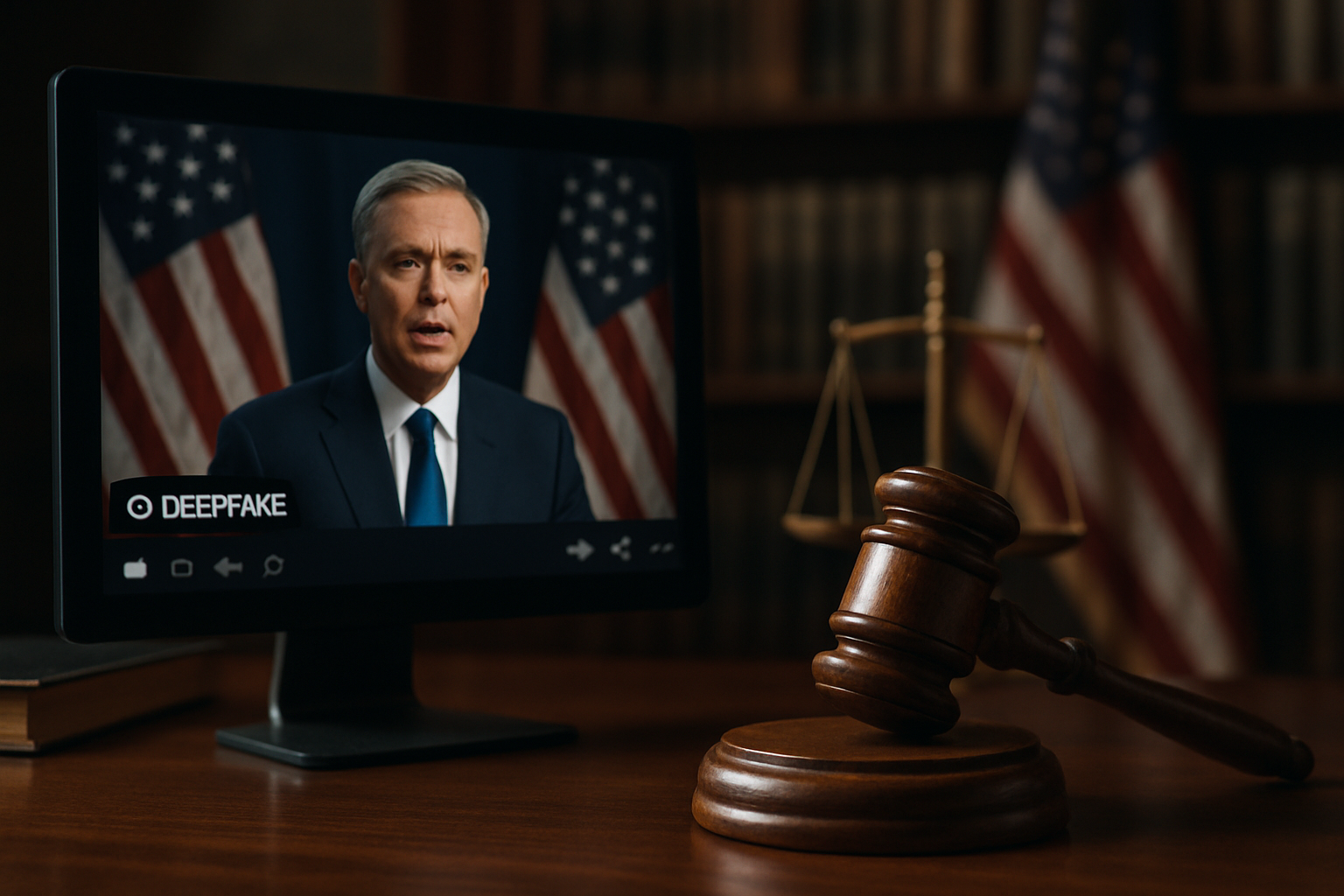Title: Legal Ramifications of Deepfake Technology in Electoral Processes
Introduction: The rapid evolution of deepfake technology has thrust the legal world into uncharted territory, particularly in the realm of electoral processes. As artificial intelligence becomes more sophisticated, the potential for manipulated media to influence voters and undermine democratic institutions grows exponentially. This article explores the complex legal landscape surrounding deepfakes in elections, examining current regulations, proposed legislation, and the challenges faced by lawmakers in addressing this emerging threat.

Current Legal Framework
The existing legal landscape is ill-equipped to address the challenges posed by deepfakes in elections. Most countries lack specific legislation targeting the creation and distribution of manipulated media for political purposes. Instead, they rely on a patchwork of existing laws related to defamation, fraud, and election interference. However, these laws often fall short in addressing the unique characteristics of deepfake technology, such as the difficulty in tracing the origin of manipulated content and proving malicious intent.
Proposed Legislation and Policy Initiatives
In response to the growing threat, several jurisdictions have begun to propose and enact legislation specifically targeting deepfakes in electoral contexts. For example, the state of California passed a law in 2019 making it illegal to distribute audio or video of a candidate with the intent to deceive voters within 60 days of an election. At the federal level in the United States, the Deepfake Task Force Act was introduced to study the impact of deepfakes on national security and election integrity.
Challenges in Enforcement and Prosecution
Even as new laws are proposed and enacted, significant challenges remain in enforcing regulations against deepfakes. The rapid pace of technological advancement often outpaces legislative efforts, creating a constant game of catch-up for lawmakers. Additionally, the global nature of the internet makes it difficult to enforce national or regional laws when deepfakes can be created and distributed across borders with ease. Prosecutors face the daunting task of proving the origin and intent behind deepfakes, particularly given the sophisticated techniques used to create and conceal them.
Balancing Free Speech and Electoral Integrity
One of the most contentious aspects of regulating deepfakes in elections is striking a balance between protecting free speech and safeguarding the integrity of democratic processes. Overly broad restrictions on manipulated media could potentially infringe on legitimate forms of political expression, such as satire or parody. Legal experts and policymakers must grapple with defining clear boundaries between protected speech and harmful manipulation, a task made more complex by the nuanced nature of political discourse.
The Role of Technology Companies and Platforms
As legislators struggle to keep pace with technological advancements, many are turning to technology companies and social media platforms to play a more active role in combating deepfakes. Some platforms have implemented policies to label or remove manipulated media, while others are investing in detection technologies. However, these efforts raise their own legal questions, particularly regarding the liability of platforms for content moderation decisions and the potential for overreach in content removal.
International Cooperation and Standardization
Given the global nature of the deepfake threat, international cooperation and standardization of laws and regulations are becoming increasingly necessary. Efforts are underway to develop international frameworks for addressing deepfakes in elections, including information sharing between countries and the establishment of global best practices for detection and mitigation. However, differences in legal systems, cultural norms, and political priorities present significant obstacles to achieving a unified approach.
The Future of Electoral Integrity in the Age of Deepfakes
As deepfake technology continues to advance, the legal community faces an ongoing challenge in adapting to this evolving threat. Future legislation will likely need to be more flexible and technology-neutral to remain effective in the face of rapid innovation. Additionally, increased emphasis on digital literacy and voter education may become a crucial component of maintaining electoral integrity. The legal ramifications of deepfakes in elections will undoubtedly remain a critical area of focus for lawmakers, legal scholars, and democratic institutions in the years to come.






